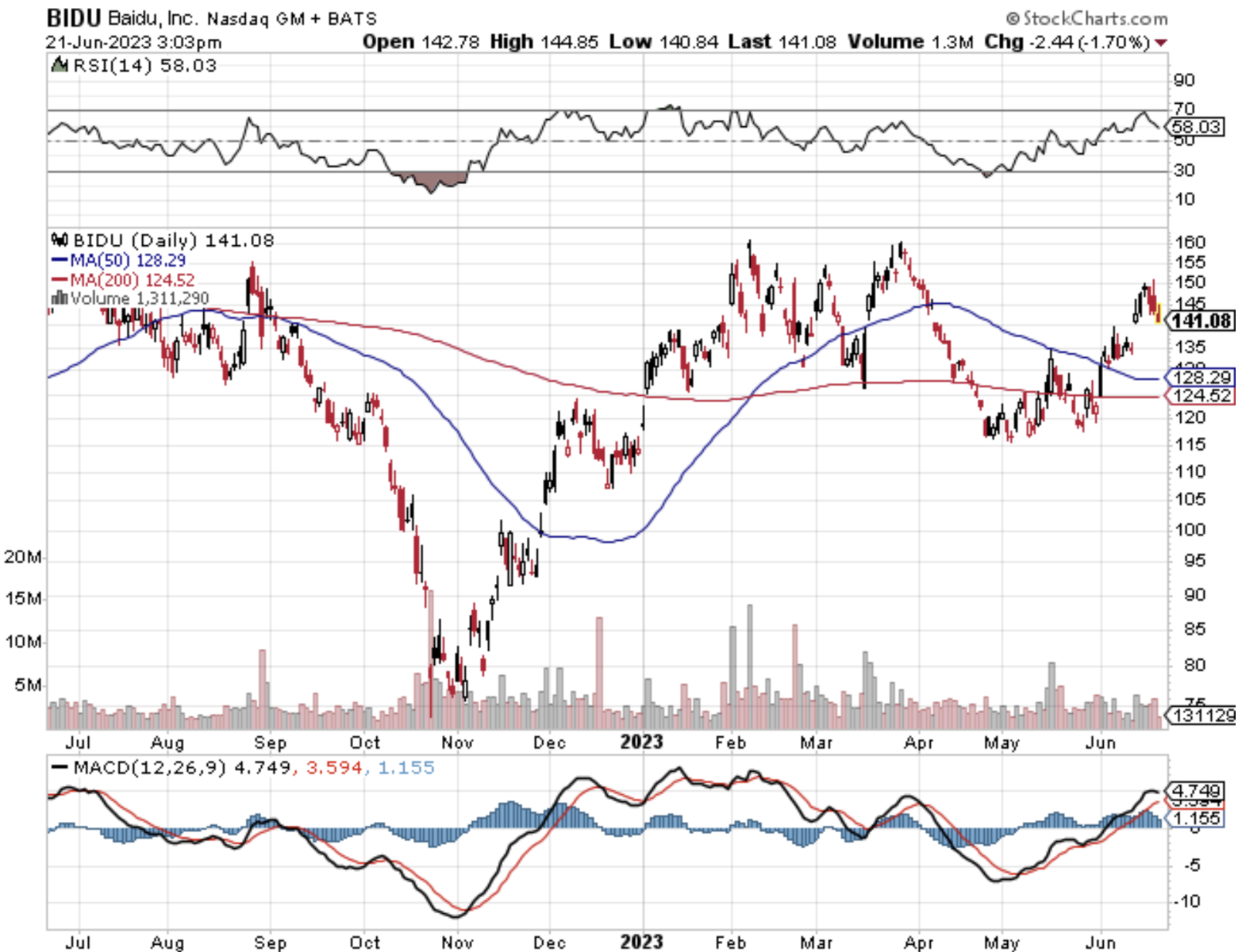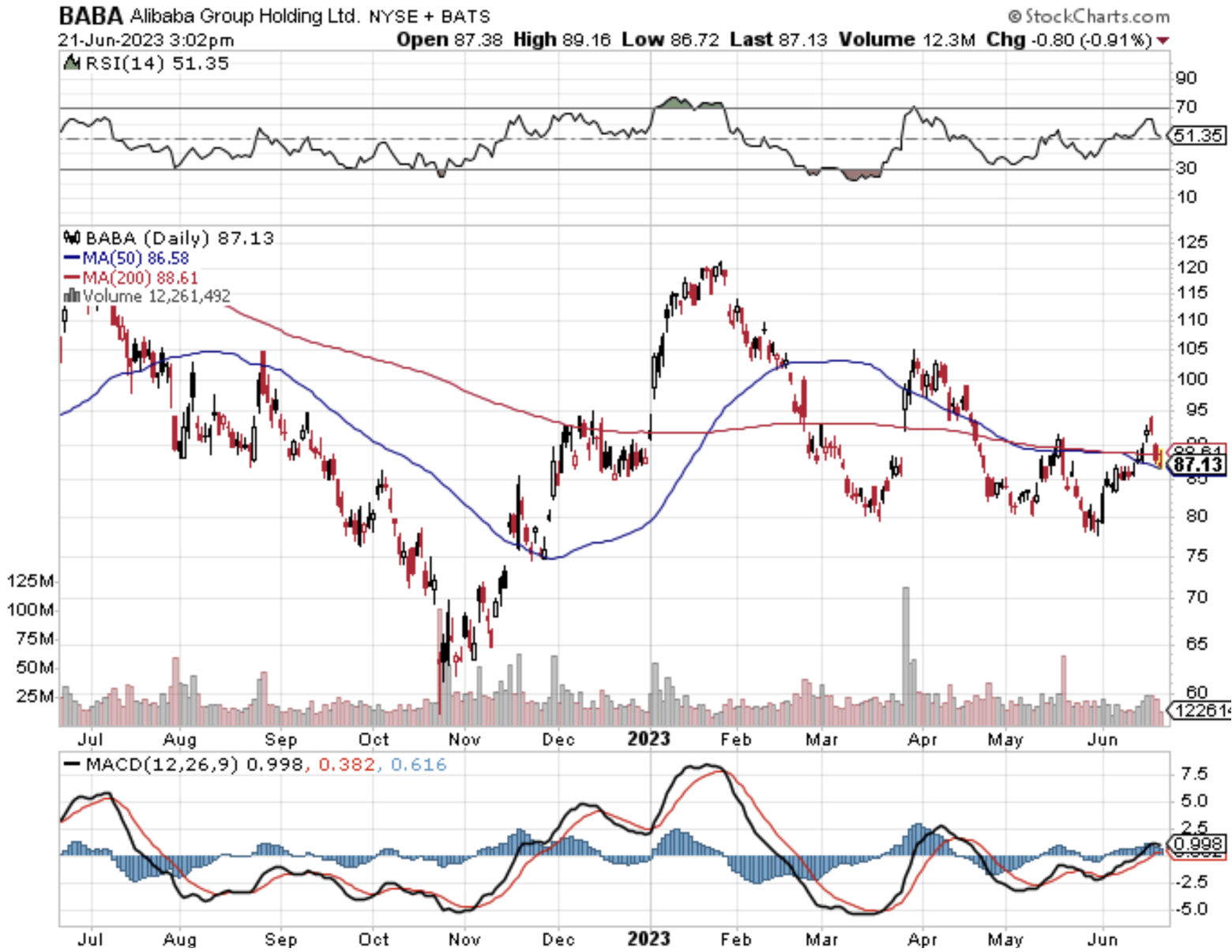Is Alibaba Investable?
Chinese ecommerce company Alibaba (BABA) is essentially a proxy for the Chinese economy and that’s not a good thing lately.
The last few years have been poor.
Single digit growth for the nations’ best tech company is not going to cut it for a prototypical growth company, but it’s not all their fault.
The company has been mired in chaos amid a faltering economy.
At a national level, China is quickly turning into the next Japan with a rapidly aging workforce, a mountain of debt, and youth unemployment going through the roof.
Throw in a dollop of geopolitical strife against the biggest economy in the world and this cocktail of lethal variables has meant that its top ecommerce company is stinking up the park.
It was just 10-15 years ago when China was the place to be flourishing during a golden era of prosperity and opportunity.
Now this paper tiger, its ghost cities, and social credit system are defensive as ever with its siege mentality after the self-induced Wuhan incident. The incident literally went viral in 2020 which lead to mass lockdowns and robot dogs barking orders.
This isn’t necessarily the best backdrop for tech firms to flourish.
In a desperate way to restart growth BABA has now gone back to the well like calling for Michael Jordan to unretire for the 3rd or 4th time.
Funnily enough, they are calling on the NBA’s Brooklyn Nets owner Joe Tsai to save the company.
Tsai understands the business intimately: he was right beside Ma at Alibaba’s inception in a Hangzhou lakeside apartment in 1999.
Another former friend is also called on to save the company – Eddie Wu, current chair of the Taobao and Tmall Group which is the name of BABA’s digital platform.
The former computer science major is credited with helping develop the company’s ad platform and the PayPal-like Alipay, now part of the Ma-backed Ant Group Co.
The company never regained its stratospheric growth, particularly as new entrants such as ByteDance and Pinduoduo (PDD). sapped its core business. It began to lose market share in the cloud, its other engine of growth, to state-backed rivals.
Long-time BABA rival Baidu Inc. — once dismissed by investors as having missed the mobile revolution — introduced China’s first ChatGPT-like AI service Ernie to positive reviews, highlighting how Alibaba and its peers may be falling behind in next-generation technology.
Beyond technology, much of the market has fixated on the imminent restructuring, and its potential to unleash a half-dozen publicly traded companies, starting with more mature units like the cloud and logistics.
In Baidu’s wake, Alibaba unfurled its own large language model dubbed Tongyi Qianwen. That might be key to ensuring the company name endures 102 years, as co-founder Ma once famously and repeatedly declared was his over-arching ambition.
BABA has told us they are rolling out their new generative AI apps but the Chinese communist party has flagged as something that must go through them.
Technology intersected by authoritarianism usually ends up a failure.
Creative juices aren’t flowing and the dynamism saps the creativity juices.
I highly doubt that Chinese generative AI can hold a candle to the Silicon Valley iteration.
Nothing they have rolled out signals they are ahead of Microsoft or Google.
If readers want to get into the future of tech through stocks, avoid China and focus on the best of breed.





